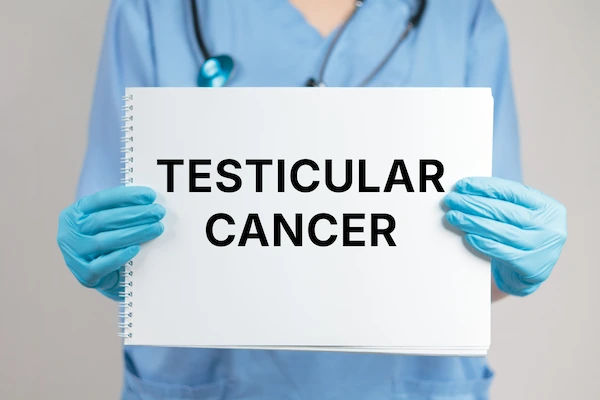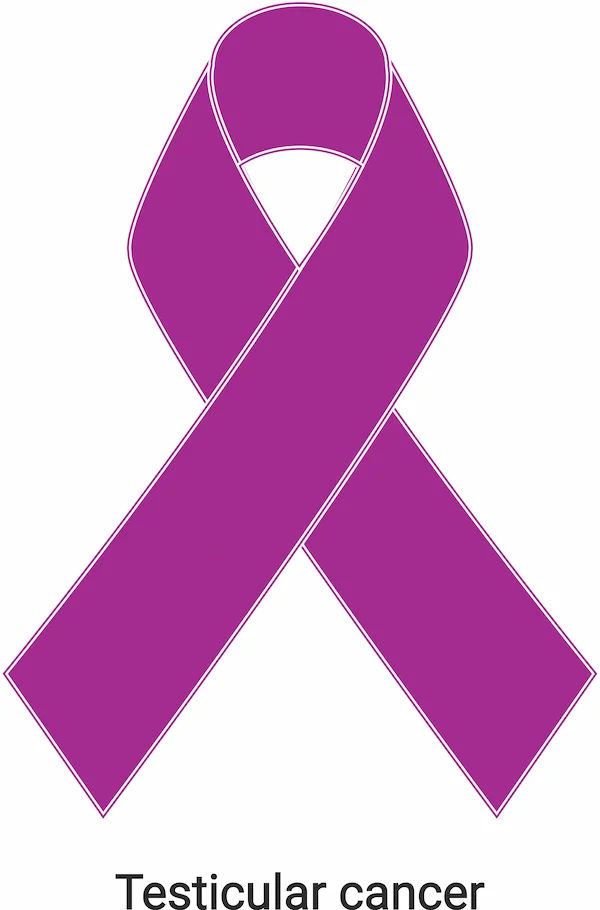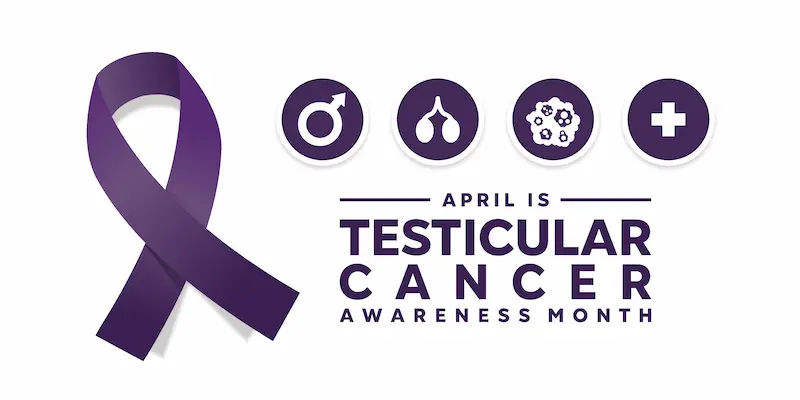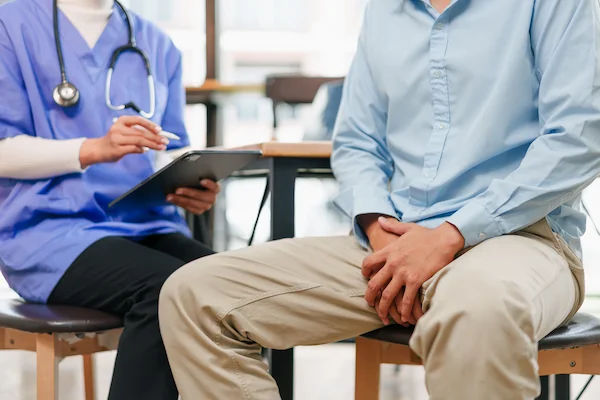Understanding Testicular Cancer and Its Aspects
Know about the testicular cancer, what it is, who is at risk, causes, symptoms, diagnosis and treatment options. Learn about the recovery tips and prevention of testicular cancer.


Introduction
Testicular cancer is a condition that affects the testicles, which are part of the male reproductive system. While it’s relatively rare compared to other cancers, it’s essential to be aware of its symptoms, causes, and treatment options.
Early detection can make a significant difference in recovery. This article aims to provide helpful information simply and compassionately so that you or your loved ones can take the right steps toward better health.
What Is Testicular Cancer?
Testicular cancer occurs when abnormal cells grow uncontrollably in one or both testicles. The testicles produce sperm and male hormones like testosterone. While testicular cancer is less common than other cancers, it is highly treatable, especially when detected early.
Consult an Oncologist for Personalised Advice
Who Is at Risk?
Testicular cancer can affect men of any age, but it’s most common in younger men between the ages of 15 and 35.
Some factors that may increase the risk include:
- Undescended testicle (cryptorchidism) – A condition where one or both testicles fail to move into the scrotum before birth.
- Family history – Having a close relative with testicular cancer may increase risk.
- Previous testicular cancer – Men who have had cancer in one testicle have a slightly higher chance of developing it in
the other. - HIV infection – Some studies suggest a possible link, though more research is needed.
Common Symptoms to Watch For
Being aware of changes in your body is crucial. Some signs of testicular cancer include:
A painless lump or swelling in one or both testicles.
- A feeling of heaviness in the scrotum.
- Dull ache or discomfort in the lower abdomen or groin.
- Sudden fluid buildup in the scrotum.
- Breast tenderness or growth (due to hormonal changes).
If you notice any of these symptoms, don’t panic—many lumps are non-cancerous. However, it’s best to consult a doctor for proper evaluation.
How Is Testicular Cancer Diagnosed?
If you experience symptoms, your doctor may recommend:
- Physical Examination – Checking for lumps, swelling, or abnormalities.
- Ultrasound – A painless imaging test that helps determine if a lump is solid (possibly cancerous) or fluid-filled (likely
a cyst). - Blood Tests – Measuring tumour markers (proteins that may indicate cancer).
- Biopsy (if needed) – Removing a small tissue sample for further testing.
Early diagnosis improves treatment success, so don’t hesitate to seek medical advice.
Treatment Options
The testicular cancer is highly treatable, even in advanced stages. Treatment depends on the type and stage of cancer, but may include:
- Surgery (Orchiectomy) – Removal of the affected testicle, which usually doesn’t affect fertility or sexual function.
- Radiation Therapy – Used for certain types of testicular cancer to kill remaining cancer cells.
- Chemotherapy – Drugs to destroy cancer cells, often used if cancer has spread.
- Surveillance – In some early-stage cases, doctors may monitor closely instead of immediately seeking treatment.
Most men recover fully and lead healthy lives after treatment.
Living with Testicular Cancer: Tips for Recovery and Prevention
1. Self-Exams for Early Detection
Performing a monthly testicular self-exam (TSE) can help detect changes early. Here’s how:
- Best time: After a warm shower when the scrotum is relaxed.
- Check each testicle: Roll it gently between your fingers to feel for lumps or hardness.
- Look for changes: Note any swelling, pain, or unusual firmness.
If you find anything unusual, consult a doctor.
2. Emotional and Mental Well-being
- A cancer diagnosis can be overwhelming. Talking to a counsellor, joining support groups, or confiding in loved ones
can help ease anxiety.
3. Fertility Considerations
Some treatments may affect sperm production. If you plan to have children, discuss sperm banking (freezing sperm
before treatment) with your doctor.
4. Healthy Lifestyle Choices
While there’s no sure way to prevent testicular cancer, maintaining a healthy lifestyle can support overall well-being:
- Eat a balanced diet – Include fruits, vegetables, and whole grains.
- Exercise regularly – Helps maintain a healthy weight and reduces stress.
- Avoid smoking and excessive alcohol – These can increase cancer risks.
When to See a Doctor
If you notice any unusual changes in your testicles, don’t ignore them. Early detection saves lives. Apollo 24|7 offers easy consultations with specialists. Book an appointment today for peace of mind.
Final Thoughts
Testicular cancer is treatable, especially when caught early. Stay aware of your body, perform regular self-checks, and seek medical advice if something feels off. With the right care and support, recovery is possible, and you can continue living a healthy, fulfilling life.
Consult an Oncologist for Personalised Advice
Consult an Oncologist for Personalised Advice

Dr.sanchayan Mandal
Medical Oncologist
17 Years • MBBS, DrNB( MEDICAL ONCOLOGY), DNB (RADIOTHERAPY),ECMO. PDCR. ASCO
Kolkata
Dr. Sanchayan Mandal Oncology Clinic, Kolkata

Dr. Sanchayan Mandal
Medical Oncologist
17 Years • MBBS, DNB Raditherapy, DrNB Medical Oncology
East Midnapore
VIVEKANANDA SEBA SADAN, East Midnapore

Dr Gowshikk Rajkumar
Oncologist
10 Years • MBBS, DMRT, DNB in Radiation oncology
Bengaluru
Apollo Clinic, JP nagar, Bengaluru
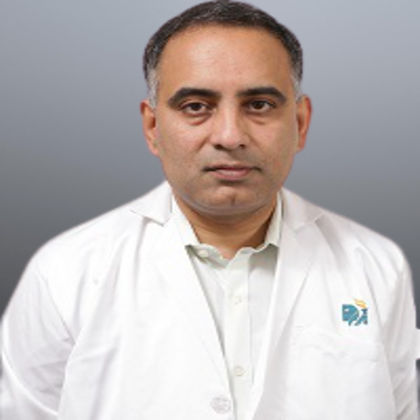
Dr. Raja T
Oncologist
20 Years • MBBS; MD; DM
Chennai
Apollo Hospitals Greams Road, Chennai
(200+ Patients)

Dr. Gopal Kumar
Head, Neck and Thyroid Cancer Surgeon
15 Years • MBBS, MS , FARHNS ( Seoul, South Korea ), FGOLF ( MSKCC, New York )
Delhi
Apollo Hospitals Indraprastha, Delhi
(25+ Patients)
Consult an Oncologist for Personalised Advice

Dr.sanchayan Mandal
Medical Oncologist
17 Years • MBBS, DrNB( MEDICAL ONCOLOGY), DNB (RADIOTHERAPY),ECMO. PDCR. ASCO
Kolkata
Dr. Sanchayan Mandal Oncology Clinic, Kolkata

Dr. Sanchayan Mandal
Medical Oncologist
17 Years • MBBS, DNB Raditherapy, DrNB Medical Oncology
East Midnapore
VIVEKANANDA SEBA SADAN, East Midnapore

Dr Gowshikk Rajkumar
Oncologist
10 Years • MBBS, DMRT, DNB in Radiation oncology
Bengaluru
Apollo Clinic, JP nagar, Bengaluru

Dr. Raja T
Oncologist
20 Years • MBBS; MD; DM
Chennai
Apollo Hospitals Greams Road, Chennai
(200+ Patients)

Dr. Gopal Kumar
Head, Neck and Thyroid Cancer Surgeon
15 Years • MBBS, MS , FARHNS ( Seoul, South Korea ), FGOLF ( MSKCC, New York )
Delhi
Apollo Hospitals Indraprastha, Delhi
(25+ Patients)

